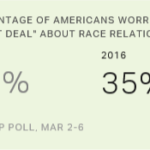By J.T. O’Donnell, founder and CEO, WorkItDaily
Inc., June 27, 2019.
So you finally decided to find a new job. After months of contemplating, you’ve come to the realization you’ve hit one of three specific career roadblocks and the only solution is to find a new employer. But, now what? How do you make sure you don’t, as the saying goes, “jump out of the frying pan and ito the fire.” You’re wise to be worried. As a career growth coach, I’ve worked with hundreds of people who left bad jobs only to end up in worse ones. The result is a massive crisis of confidence that’s tough to bounce back from. So, what can you do to minimize the risk of making a bad career move?
The G.L.O.W. Method for career self-improvement
In my first book, I introduced the four-step methodology I use to help people create career satisfaction on their own terms. The G.L.O.W. Method teaches you a simple process you can use throughout your career to drive professional growth.
- Gain Perspective = force yourself to look at your situation from a new point of view.
- Luminate the Goal = dial-in tightly on a specific result you want to achieve.
- Own Your Actions = map out the specific habits you’ll need to succeed.
- Work It Daily = set up systems to build those habits consistently.
Let’s look at how that second step can help identify what your next job should be.

Your next job needs to meet 2 criteria…
To Luminate the Goal, you’ve got to shine a bright light on what you want. Getting clear on what a good job means to you is vital. When it comes to building a satisfying career, no two people want the same things. Unfortunately, many job seekers start looking for work based on the wrong criteria. They make a long list things like the ideal salary, benefits, location, etc. While I think those things are important and should eventually be outlined, the real first step in the process is to define your next job based on the following two criteria:
1. Does the job let you work on solving a problem you care about?
Today, we want our jobs to have purpose. When we believe our jobs have meaning, we feel more satisfied and engaged in the work. This leads to greater productivity and success. If you don’t feel the job will let you contribute to something you care about, you’ll struggle to stay motivated and positive on the job.
Now, I’m not saying that the job needs to change the world. On the contrary! What I’m saying is you need to make a connection between your job and the impact is has.
For example…
I worked with a client who came from a family of dentists and lawyers. She felt incredible pressure to have what she referred to as a “serious” job. However, her real passion in life was make-up. She loved doing her friends’ faces. When I asked her why, she explained the intense joy she felt when she saw their expressions of excitement when they looked in the mirror. In her words, “Each time I feel so much power knowing I made my friend feel better about herself.” That’s when I pointed out to her that this work had deep meaning and purpose to her, which meant she’d be more successful and satisfied working in cosmetics. She took my advice and now is an executive at a make-up company and couldn’t be happier.
2. Will you be using your preferred workplace personas to do the job?
We all have lots of skills and abilities. But, that doesn’t mean we want to use all of them on a daily basis. Understanding how you like to execute tasks and create value for employers is a vital part of the job search process. These are referred to as your “workplace personas” and they are the easiest way to narrow down the type of job you want next.
Let me prove it to you…
If you go to a job board right now and search for open positions with the job title, “Account Manager” you’ll come up with dozens of opportunities. However, as you start to read through them, you’ll see no two are alike. Some companies call salespeople Account Managers. Meanwhile, other companies see that as a customer or vendor support role. Each job would require you to use a different set of skills. If you don’t know the workplace personas you want to leverage, how can you narrow in on the jobs that would suit you?
Create an interview bucket list to help make sense of your criteria.
One of the first exercises I have our clients complete when looking for a new job is an interview bucket list. It’s a list of companies whose products and services you admire. It helps them understand how they feel connected to certain employers so they can map out the two criteria above. When you explore why you’re drawn to a company you reveal key information about yourself that makes defining your criteria easier. Better still, it will actually get you excited about the job search process.
_______________________________

J.T. O’Donnell,Founder and CEO, WorkItDaily.com
.
.












